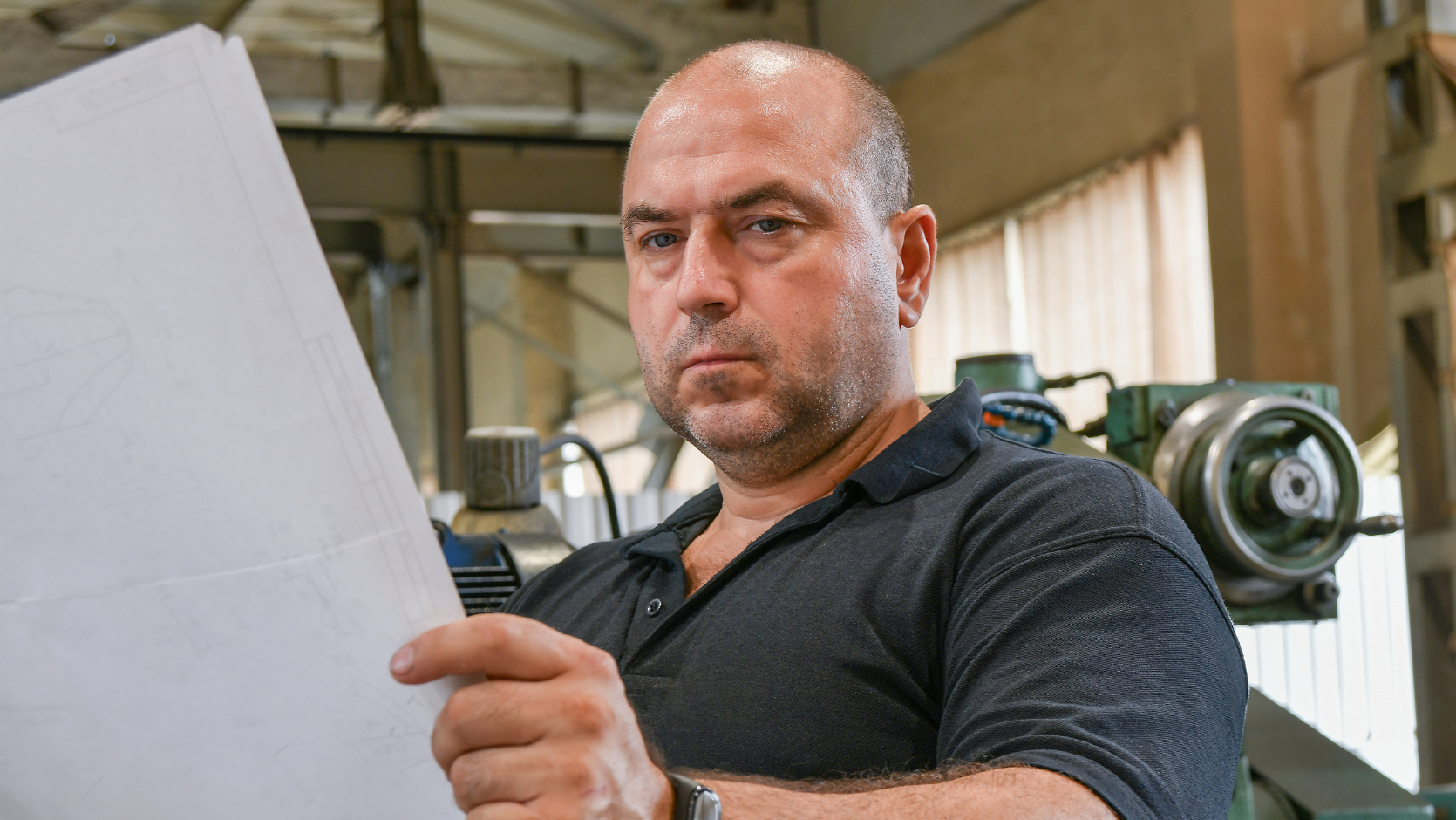The Facts
Gun licence issued for recreational hunting and vermin control
In 2001, a man was issued with a gun licence on the basis that he had the genuine reasons of recreational hunting and vermin control.
From that date until 2014, the licensee had renewed or re-applied for the gun licence as necessary.
The licensee leased property S, near Gunnedah, for grazing his livestock.
He would sometimes stay at property S. The rest of the time he lived with his mother at property N.
Police attend break and enter at property and find licensee’s rifle on bed
The licensee’s friend, Ms L, had been staying at property S on and off for eight months, when on 27 December 2014 she reported a break and enter at the property.
Earlier that morning, the licensee had left property S and driven to property N to collect his rifle from safe storage in order to put down a sick sheep at property S.
Returning to property S just prior to the police arriving, the man entered the house and placed the rifle on the bed in his room.
When the police arrived, the sergeant on duty saw the rifle on the bed, asked the licensee why it was there and informed him that it needed to be locked away.
After conducting interviews, the police confiscated the rifle, along with ammunition found in the house.
Gun licence suspended and then revoked
On 30 December 2014, the licensee was served with a notice suspending his firearms licence on the basis of public interest.
On 12 February 2015, he was charged under the NSW Firearms Act 1996 (“the Act”) with failure to keep a firearm safely and holding a Category A or B licence without approved storage.
On 28 March 2015, after he had been charged with these offences, his gun licence was revoked.
The licensee sought an internal review of that decision, and on 2 July 2015, the decision was affirmed by the Commissioner of Police. In August 2015 the man applied to the NSW Civil and Administrative Tribunal (NCAT) for a review of the Commissioner’s decision to revoke his gun licence.
Offences under Firearms Act do not result in conviction
The licensee entered a plea of guilty to the firearms safety and storage offences and was convicted of both charges on 6 November 2015.
The licensee then asked the court to redetermine the charges on the basis of a plea of not guilty.
His request was heard by the Local Court on 9 March 2016, with the court dismissing the first charge and finding the licensee guilty of the second charge without a conviction.
Appeal against revocation of gun licence follows non-convictions on gun safety charges
When the appeal against the revocation of the gun licence was heard by NCAT in July 2016, the tribunal had to determine whether the licence could be reinstated, given that the firearms safety and storage charges against the man had not resulted in convictions by the court.














Expert commentary on the court's decision
Tribunal finds in favour of Commissioner of Police
In the case of Maguire v Commissioner of Police, NSW Police Force [2016] NSWCATAD 210, the NSW Civil and Administrative Tribunal found in favour of the Commissioner of Police, affirming the Commissioner’s decision to revoke the gun licence of the applicant, Mr David Maguire.
Under section 24(2) of the Act, the Commissioner of Police is given the discretionary power to revoke a licence for various enumerated reasons.
For example, the Commissioner can revoke a licence if the licence holder has contravened a provision of the Act or regulations, whether or not they are convicted of an offence.
The Commissioner can also do so if he or she forms the opinion that the licence holder is no longer a fit and proper person to hold a licence, or for any other reason set out in the regulations, including that it is not in the public interest for the licence holder to continue holding a gun licence.
Licensee contravened Act, but not sufficient cause for revocation of licence
The tribunal accepted that Mr Maguire had brought his rifle to Springvale (property S), left it lying on the bed when police arrived, and on their instruction had disassembled it and hidden it behind a cupboard as a way of storing it.
However, the tribunal found that on the balance of probabilities, Mr Maguire had breached the Act by having firearms and ammunition at Springvale which were not stored lawfully.
In coming to this conclusion, the tribunal noted that the local court decision to reduce Mr Maguire’s criminal charges hinged on the fact that the charge related to storage of the firearm between 5.00pm – 6.30pm on the day of the incident only.
The tribunal also found that Mr Maguire gave conflicting versions of events, particularly as to whether he kept firearms at the Springvale property overnight.
When balanced with the evidence that Mr Maguire needed the rifle to deal with foxes and wild dogs, and that he had installed a spotlight to assist with this during the night, the tribunal preferred the police’s evidence.
The tribunal therefore concluded that Mr Maguire likely did keep the rifle at Springvale overnight and when not in use, and thus had a firearm that was improperly stored.
While the tribunal found that Mr Maguire had been in breach of the Act, it was also satisfied from Mr Maguire’s evidence that he understood his storage and safety obligations in relation to firearms.
The tribunal therefore concluded that Mr Maguire’s contraventions of the Act alone were not sufficient for the tribunal to exercise its discretion to revoke Mr Maguire’s gun licence.
Consider consulting a lawyer before giving a statement to police
This case illustrates why lawyers advise people not to give statements to the police without consulting a lawyer first.
If you make a statement to the police in circumstances where you think you have done nothing wrong, that evidence can hold more weight than evidence given as part of a defence to a known crime.
In this circumstance, it even led to a finding that Mr Maguire had been dishonest in his evidence to the tribunal.
Tribunal finds licensee not fit and proper person to hold licence
The test relied upon by the tribunal for determining whether a person is fit and proper to hold a firearms licence was that found in FD v Commissioner of Police, New South Wales Police [2008] NSWADT 88. In that case, the presiding judicial member stated that it involved an assessment of the person’s “knowledge, honesty and ability.”
The tribunal accepted that Mr Maguire seemed to have knowledge of the requirements to own firearms, including those as to proper storage.
Further, the tribunal noted that no evidence had been submitted questioning Mr Maguire’s ability to use his firearms.
However, the tribunal also found that Mr Maguire had not been honest in the evidence given to it and thus was not a fit and proper person to hold a firearms licence.
The tribunal noted that should Mr Maguire acknowledge his errors and guilt, he would not be precluded from one day applying for a new licence.
Character references should refer to relevant matters
Mr Maguire submitted character references, some of which referred to his appropriate management of firearms.
However, the tribunal noted that the references did not contain any statement as to the referee’s knowledge of the offences Mr Maguire was charged with.
As a result, the tribunal gave little weight to the character references as comments on whether Mr Maguire was a fit and proper person to hold a licence.
This highlights the importance of ensuring that when you ask someone to prepare a character reference, the author knows the purpose of it, including the existence of any criminal charges against the individual who is the subject of the reference.
Without this, it is assumed that the referee did not have knowledge of the offence, and the reference cannot be said to be given genuinely as with full knowledge.
Tribunal finds not in public interest for licensee to retain licence
Having been satisfied that Mr Maguire contravened the Act, and that his status as a fit and proper person was questionable, the tribunal then considered whether there was any risk to public safety, and thus whether it was contrary to the public interest to allow Mr Maguire to retain his licence.
The tribunal was satisfied that the Commissioner had appropriately exercised his discretion in revoking the licence on public interest grounds.
While the individual grounds of the police’s argument would not justify revocation on their own, when taken as a whole they painted a picture of sufficient risk to public safety that allowing Mr Maguire to retain his licence would not be in the public interest.
Important considerations in criminal matters
This case highlights important considerations for anyone finding themselves involved in a criminal matter.
In most criminal proceedings, it is important to recognise your faults and wrongdoings (where you have actually committed a crime of course!) As seen here, ultimately Mr Maguire’s case failed due to the dishonesty he displayed to the tribunal.
Legislation often grants court officials discretionary powers to reduce or dismiss charges in special circumstances. Many magistrates and judges highly value remorse and insight into one’s wrongdoing.
If you are uncertain of your rights, or of whether you have done something wrong, it is best not to talk to the police when asked to give a statement. You have the right to consult a lawyer prior to making a statement, and this cannot be taken as an indication of guilt. It is better to be safe than sorry.
However, if you do make a statement to police, it is important to ensure that any future evidence you give is consistent with the statements previously given, as any discrepancies will cause the court to doubt your credibility as a witness.
Finally, when obtaining a character reference, ensure that the person giving the reference knows exactly what you have been charged with, and that they make a note of that knowledge in the reference.